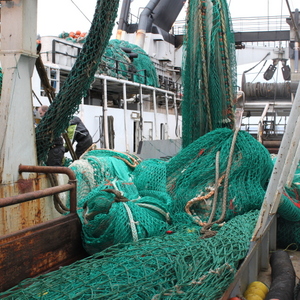The issue of discards continues to be a hot topic in the fishing industry. The discarding of unwanted catches by fishermen constitutes a substantial economic waste that challenges the financial viability of fisheries and is at odds with the sustainable exploitation of marine resources. In recent years, public opinion has been building up against the wasteful practice of discarding, and, with the reform of the European Union’s Common Fisheries Policy (CFP), an obligation to land all catches is being introduced gradually on a fisheries-by-fisheries basis.
Fishers in Scotland, and around the world, have trailed and implemented a range of initiatives aimed at reducing the catch of unwanted fish, mainly through modifications to fishing gears or use of new technology, although these initiatives are still too scattered to fully eliminate the practice. Therefore, in many Scottish fisheries there is still a need to find solutions for reducing unwanted catch by improving selectivity in the broadest sense.
Responding to this challenge, this project undertook a series of tasks to provide a clear framework for future work on selectivity. This involved a concise review of the state of knowledge and advances in selectivity; identification of novel ideas and innovations for improving selectivity, inspired from other disciplines and sectors; mapping of the pathway to developing selective gears and practices, including the identification of possible roadblocks to the development and uptake stages; and drafting of a strategic plan for future multidisciplinary initiatives aimed at improving selectivity in Scottish fisheries. Possible funding sources to support future selectivity research projects and initiatives were also identified.
The final project report of the project, which is available for download on the FIS website, provides a clear framework for future work in the areas of selectivity, in particular drawing fresh ideas and initiatives from beyond the fisheries sector. In turn, the products of this future work are expected to support Scottish fishers with respect to adapting to EU and possible future UK discard policies by bringing about improvements in selectivity.

